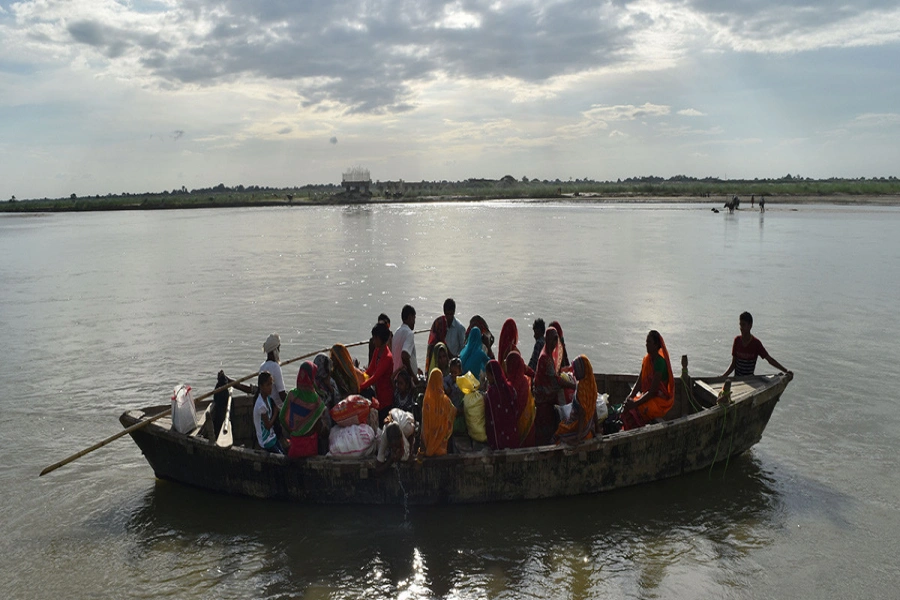Authorities fear an influx into Nepal of those likely to be rendered stateless in India
KATHMANDU, Dec 22: Amid concern that new amendments to India’s citizenship-related laws and subsequent protests across that country could cause a mass exodus of people across the open border with Nepal, the authorities here have stepped up security vigilance and checks at major border crossing points.
Senior officials at the Ministry of Home Affairs said they are exercising additional precaution as they are apprehensive of spillover effects of the ongoing protests in India and of the Indian government’s plans to crack down on ‘illegal’ immigrants.
“We have sent circulars to security agencies deployed at border points and immigration authorities all along the border with India to exercise extra vigilance and monitor the cross-border movement of people . Security vigilance is up compared to the past,” said Home Ministry Spokesperson Kedar Nath Sharma.
Nepal and India share an open border regime, making it easy for people on both sides to travel from one country to the other without any visa requirements. But there is concern that this exclusive privilege enjoyed by nationals of the two countries could be misused by third country nationals.
Central Security Committee urges heightened vigilance after Rau...

Protests have spread across India over the Citizenship Amendment Act and the National Register of Citizens since early this month. There are fears the new changes to the law will deprive large numbers of the Muslim population living in different part of the country of their citizenship , rendering them in effect stateless.
As the new law appears to allow only non-Muslim immigrants to reside in India, authorities in Nepal are apprehensive that there could be an influx into Nepal of those likely to be rendered stateless .
The National Register of Citizens (NRC) in Assam state, published on 31 August 2019, for instance, excludes some 1.9 million residents from the register. This number includes some 100,000 people of Nepali-origin who have been living there for up to 200 years, but a great majority of them are Muslims who emigrated from Bangladesh in the 1970s after that country broke away from Pakistan.
Nepal Police and Armed Police Force (APF) units along the border have been instructed to seek the identity cards of those deemed suspicious and to increase checking at all border points. APF personnel have also increased foot patrols along the border as per the instructions of the Home Ministry.
The Home Ministry has instructed district administration offices (DAOs) in Jhapa, Morang and Ilam in particular to keep special vigil over the border.
APF Spokesperson Suraj Kumar Shrestha said they have increased the security presence along the border . “We have been increasing our vigilance at the border since a few months ago in view of the possible infiltration of Rohingya refugees and others into Nepal. We have further increased the vigilance in view of the latest situation in India,” he said .
The government last week decided to set up an additional 114 border outposts of the APF along the Indo-Nepal and Sino-Nepal borders. With this new decision taken by the cabinet last week, the total number of border outposts along Nepal’s international border will reach 221.
APF has already started pulling personnel currently deputed for industrial security and those stationed in various hill districts.
Except for a few major border points with China where there is cross-border movement, most of these outposts would be stationed along the Indo-Nepal border. The decision comes in view of apprehensions that the open border between the two countries could be exploited by elements inimical to the interests of the country.




































